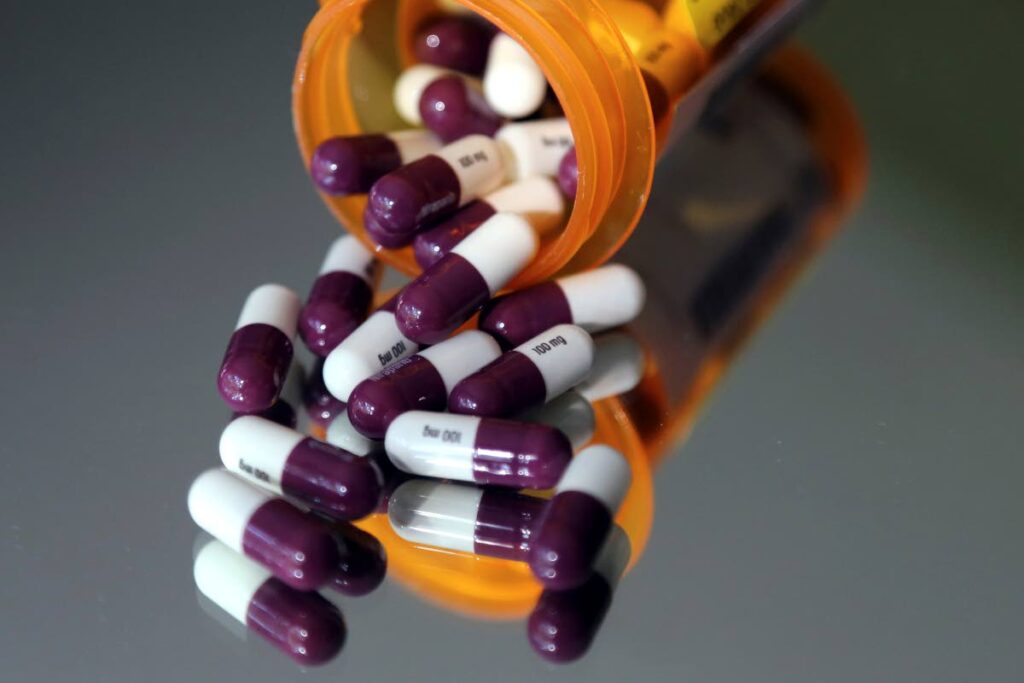UNC: Big pharmacies monopolising drugs, forex

PHARMACISTS are calling for a change in legislation surrounding the registration and regulation of drugs, saying they have led to shortages and a monopoly on pharmaceuticals that are detrimental to patients.
In his contribution at the Leader of the Opposition's Town Hall Meeting in St Joseph on December 9, pharmacist and president of the Private Pharmacy Retail Business Association Glenwayne Suchit said special import permits were granted to “certain people” to bring in medication, and one company had control of 75 per cent of the pharmaceuticals in the country.
The Fair Trading Act said an enterprise was considered as having monopoly power if it controlled at least 40 per cent of a particular market.
He said that company, which owned a chain of “super pharmacies” nationwide, was using that monopoly to inflate prices and he had brought the matter to the Fair Trade Commission.
He also accused financial institutions of being biased to that and other large pharmaceutical companies when it came to distributing foreign exchange.
“The foreign exchange, over $300 million annually, are going to this major company – unbridled, unchecked.
“When the smaller companies and medium companies approach the bank for foreign exchange, they are asked to take a loan for three-five years to get US$1 million. Take a loan for TT$7 million and you will be able to get the thing, so the bank benefits (while) that biting into the profits of the company so they are automatically forced to close down, scale down.”
Suchit also expressed his dissatisfaction with the Chemistry, Food and Drugs Division, especially in the area of the registration of pharmaceuticals. He said 117 out of the 167 registered products in the country were registered to one company. And the health ministry only approved four legal notices this year.
“So if you’re trying to get something registered to bring options or alternatives to patients, you cannot get it registered because it will be a competitive product to these other big companies that carrying up their prices to increase their profit margins.”
He added that in 2023 there were several raids at public pharmacies, called Operation Windsor, in which Chemistry Food and Drug Division and police officers seized $1.5 million and quarantined $10 million in pharmaceuticals that were deemed to be counterfeit, illegal or not fit to be used.
“Although those same drugs, for example Emergen-C, was fit to be used during covid to save people’s lives but not fit to be used after that, primarily because they wanted to take this off the market so that another product that that company (sold could be used to) increase monthly sales by $6 million.”
In addition, he claimed the same company with the monopoly was advertising third-schedule drugs (which required a prescription from a physician or dentist) when it was illegal to advertise such drugs under the Food and Drugs Act and Pharmacy Board Act. He said the company developed an app and was advertising the drugs there, with coupons for the super pharmacies only.
He said there was a “significant shortage” of over-the-counter as well as mental health drugs in the country, saying people could not even buy a Dulcolax laxative tablet and sometimes could not get anaesthetic to do minor surgery.
Therefore, he said all the antiquated laws regarding pharmacies needed to be updated and there needed to be a complete overhaul of the Customs and Excise Division to stop the illegal importation of pharmaceuticals.
Anil Maraj, a member of the pharmacy board agreed, also calling for updates on the laws affecting Chemistry, Food and Drugs, the Medical Board and the Pharmacy Board.
He was especially concerned that requirements to register over-the-counter and vitamin supplements were the same as those to register third schedule drugs.

Comments
"UNC: Big pharmacies monopolising drugs, forex"